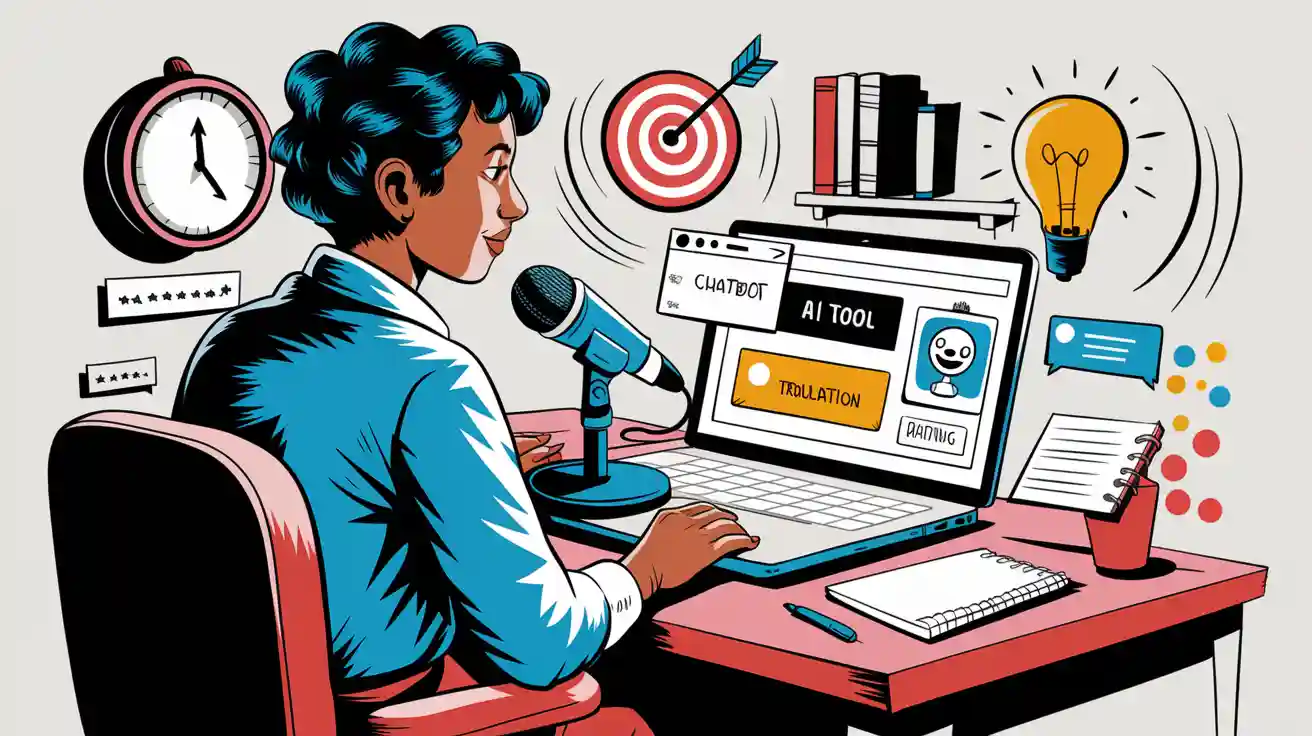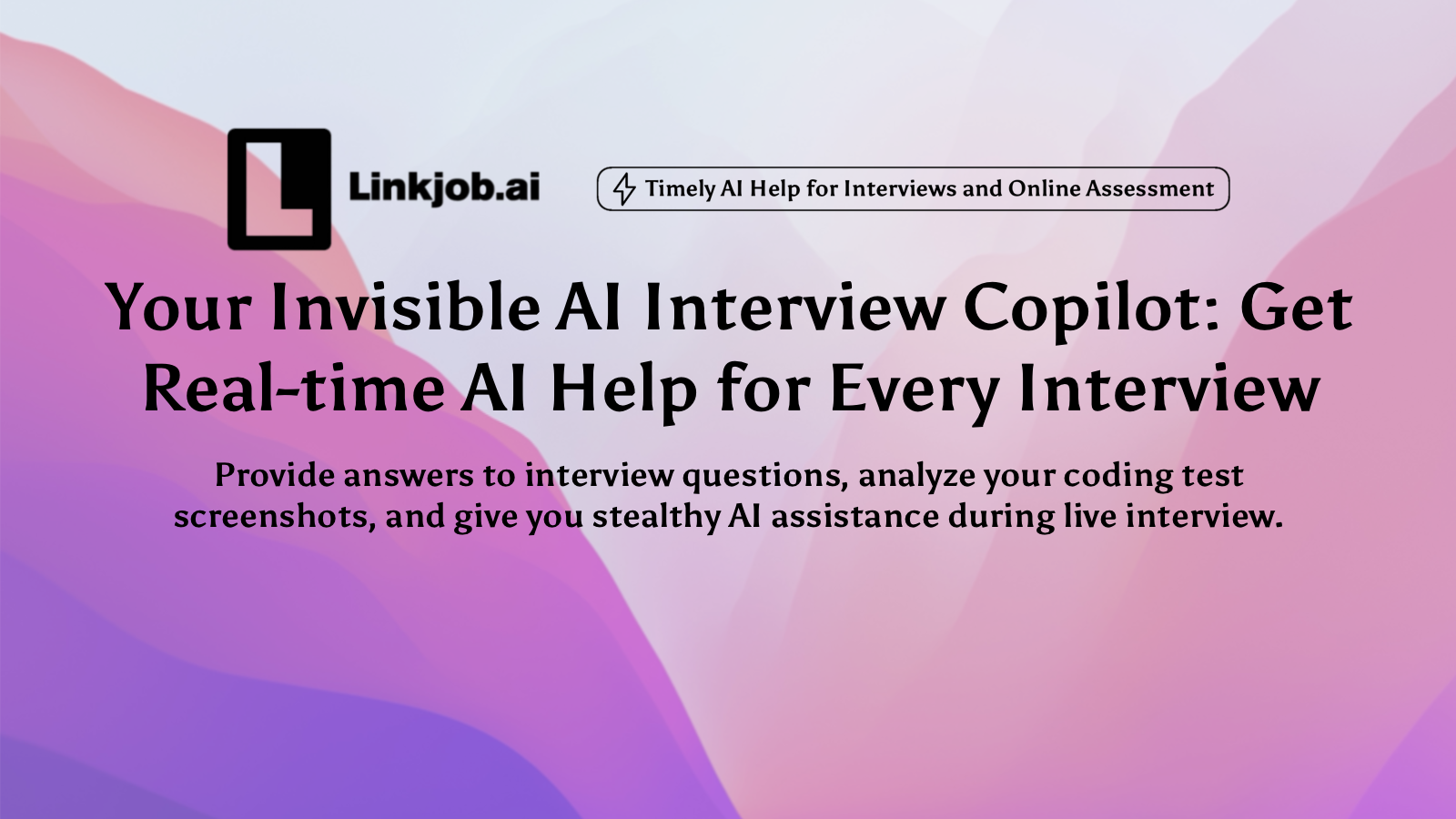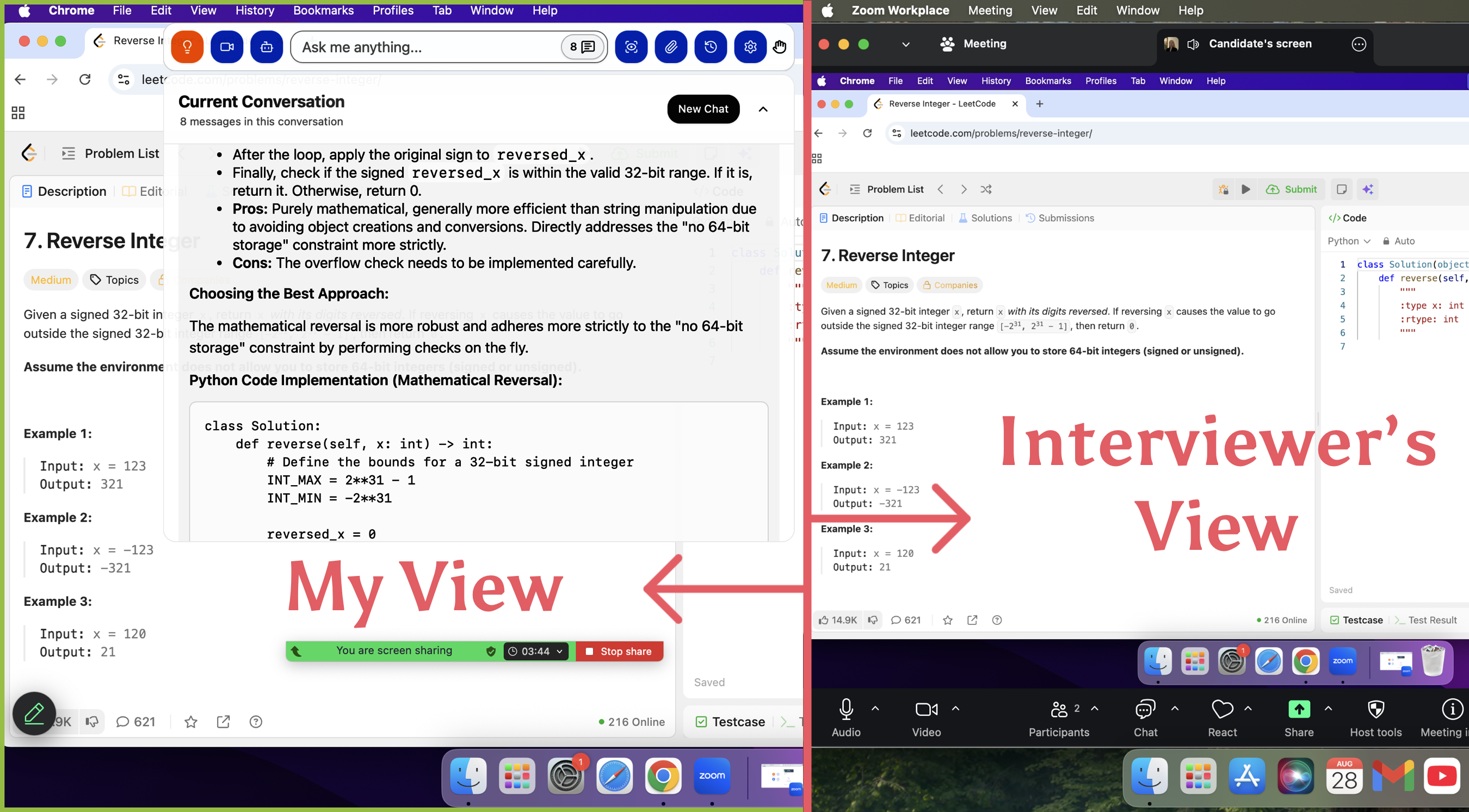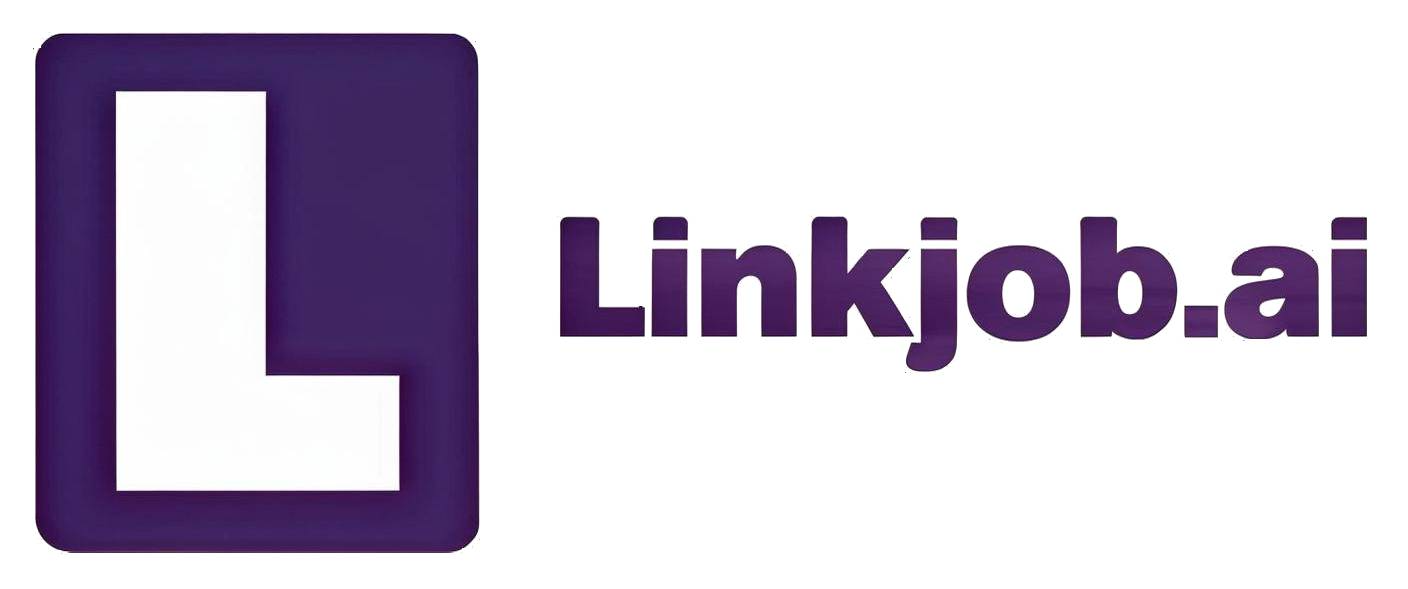How I Used AI Tools During Live Interviews and What Actually Helped Me

I used to dread live interviews. Nerves would hit, and I often struggled to keep my answers sharp under pressure. Many candidates—myself included—feel frustrated by poor communication, slow feedback, and unexpected questions that throw us off balance. Only a third of candidates report a positive interview experience, largely due to these issues. When I started using ai tools for live interview scenarios, I finally found practical ways to stay calm, respond confidently, and actually improve my performance.
I have to say, Linkjob.ai is really incredibly useful. During the interview process, it's completely invisible—even if the interviewer requires screen sharing, the other party can't see at all that I'm using AI.
Interview Challenges
Nerves and Pressure
I remember the first time I faced a panel of interviewers. My hands shook, and my mind raced. Nerves can make even the most prepared person stumble. Over time, I learned that practicing under real pressure makes a huge difference. AI tools changed the game for me. Here’s how they helped:
AI-powered mock interviews, like those from Hume and Linkjob, adapt to your answers. They feel almost like the real thing.
These platforms give feedback on your tone, confidence, and even how you manage your emotions. I never got that from practicing in front of a mirror.
I noticed my nervous habits—like using filler words or speaking too fast—because the AI pointed them out.
Practicing with AI made my answers sound clearer and more natural. I felt calmer each time I faced a real interview.
Lack of Feedback
Traditional prep methods often left me guessing. Friends and family gave general advice, but I needed specifics. AI tools filled that gap.
They analyze every answer, highlighting strengths and weaknesses.
I received instant feedback on clarity, pacing, and structure. This helped me fix mistakes right away.
AI suggested proven frameworks, like STAR, to organize my responses. My answers became more polished and focused.
Unexpected Questions
Nothing throws you off like a question you didn’t expect. I used to freeze or ramble when this happened. AI tools helped me prepare for surprises.
Mock interviews with AI simulate real scenarios, including curveball questions.
The AI adapts, so I never knew what would come next. This kept me on my toes.
Practicing with unpredictable questions taught me to stay composed and think on my feet.
AI Tools for Live Interview
Real-Time AI Assistants
During actual interviews, I found real-time ai tools for live interview support to be a game changer. Linkjob stood out for me. It listens to the conversation, recognizes questions, and suggests answers on the spot. This feature helped me stay calm when I faced tough algorithm or finance questions. Linkjob uses my resume and the job description to give me answers that fit my background. I also tried tools like Final Round AI and Interviews Chat, but Linkjob’s real-time support felt more tailored especially for demanding roles like tech and finance. I could focus on the conversation, knowing I had backup if I got stuck.

Industry-Specific Solutions
Some ai tools for live interview preparation focus on certain industries. For example, Linkjob is great for tech and finance, helping with coding, system design, and financial modeling. Other tools target law, medicine, or engineering, offering questions and feedback based on those fields. I learned that using a tool designed for my industry made my practice sessions much more effective. These platforms often include ethical and regulatory topics, which are important in fields like law and healthcare. Choosing the right tool for my field gave me a real advantage.
Real-Time Support in Interviews
Instant Answer Suggestions
When I first tried real-time answer suggestions, I felt like I had a secret weapon in my corner. During a live interview, Linkjob’s Real-Time AI Interview Assistant listened to the conversation, picked up on each question, and gave me answer ideas almost instantly. I saw suggestions pop up in less than a second—fast enough to keep up with the flow of the interview. This helped me stay focused and confident, even when the interviewer threw a curveball.
Here’s what stood out to me about Linkjob’s system:
It worked right inside my video call, whether I used Zoom, Teams, or Google Meet.
The AI understood different accents and complex questions, so I never missed the point.
I could upload my prep notes and check them quietly if I needed a quick reminder.
The suggestions matched my resume and the job description, so my answers always felt personal and relevant.
The tool even translated questions if the interviewer switched languages.
I noticed that other ai tools for live interview support offered real-time prompts, but Linkjob’s suggestions felt more tailored to my background and the specific role. This made a huge difference when I faced unexpected or technical questions. The AI didn’t just give me generic advice—it helped me organize my thoughts and answer with clarity.

Research backs up my experience. Studies show that real-time AI support can improve interview outcomes by up to 80%, compared to only 30% with traditional methods. The instant feedback and realistic practice help candidates like me build trust, stay on track, and give better answers under pressure.
Structured Feedback
Getting feedback during a live interview used to be impossible. Now, with AI, I get structured feedback in real time. Linkjob analyzes my answers as I speak, pointing out things like filler words, unclear phrasing, or if I’m speaking too fast. The feedback is clear and objective, so I know exactly what to fix.
Here’s how structured feedback helped me:
I saw my progress right away, which kept me motivated.
The AI highlighted my strengths and weaknesses, so I could focus on what mattered most.
I felt less anxious because I knew the feedback was fair and unbiased.
Other candidates have noticed the same benefits. Many say that AI feedback makes the interview process more transparent and less stressful. I found that this kind of feedback not only improved my answers but also made the whole experience feel more positive and professional.
Staying Composed
Staying calm during a tough interview is hard. I used to get nervous and lose my train of thought. With real-time AI support, I felt more in control. Linkjob gave me gentle nudges and reminders if I started to ramble or forget my main points. The AI helped me organize my answers, recall important examples, and keep my responses structured.
Emotion AI technology also played a role. It tracked my stress levels and engagement, helping me understand when I needed to slow down or take a breath. This made it easier to manage my nerves and stay focused, even when the pressure was on.
Here are a few ways AI helped me stay composed:
Real-time prompts kept me on track and reminded me of key details.
Backup support reduced my anxiety, so I could present myself calmly.
Preparation features helped me organize my thoughts before the interview started.
The AI helped me recover quickly if I blanked on a question.
I learned that using ai tools for live interview support isn’t just about getting the right answers. It’s about feeling prepared, staying calm, and showing my best self—even when things get tough. With Linkjob by my side, I walked into every interview with more confidence and clarity.
Maximizing Success with AI Tools
Preparation Strategies
Getting ready for a live interview takes more than just reading questions. I always set clear goals for each practice session. Sometimes I focus on technical skills, other times I work on staying calm. Here’s what works best for me:
I learn how AI tools for live interview practice score my answers. They look at keywords, tone, and how clear I sound.
I update my resume and LinkedIn with the right keywords. This helps me stand out in applicant tracking systems.
I use the STAR method to answer common questions. It keeps my answers organized and easy to follow.
I practice speaking slowly and clearly. AI tools notice if I rush or mumble.
I always review feedback from both AI and mentors. This helps me spot what I need to fix.
Customizing for Your Industry
Every industry has its own style. I always pick AI tools that fit my field. For example, tech interviews focus on coding and system design, while finance interviews ask about modeling and regulations. Here’s a quick table showing how AI tools can be tailored:
Industry | What AI Focuses On | Example Questions |
|---|---|---|
Technology | Coding skills, technical jargon | Algorithms, system design |
Healthcare | Certifications, patient care | Medical cases, ethics |
Finance | Compliance, financial modeling | Market analysis, regulations |
I make sure the tool uses the right language and covers topics I’ll face. This way, my practice feels real and helps me get ready for the actual interview.
When I look back, using ai tools for live interview made all the difference. Linkjob’s real-time support helped me stay calm and answer tough questions. I saw my confidence grow and my answers improve. Here’s what I noticed:
My anxiety dropped with unlimited practice and instant feedback.
I understood jobs better and felt more prepared.
My interview-to-offer ratio went up.
If you want to boost your chances, combine solid prep with smart, real-time help. You can walk into any tech or finance interview ready to win.
FAQ
How do I set up Linkjob for a live interview?
I log in, upload my resume, and paste the job description. I choose the interview platform, like Zoom or Teams. Linkjob connects and starts listening. I see answer suggestions pop up during the interview.
Can AI tools really help with unexpected questions?
Absolutely! I’ve faced tough questions before. Linkjob listens, understands the question, and gives me ideas right away. I don’t freeze or panic. I just check the suggestions and answer with confidence.
Is it okay to use AI tools during real interviews?
Yes. I let the AI support me, but I make sure my answers sound like me.
What industries work best with Linkjob?
Linkjob shines in tech and finance. It helps with coding, system design, and financial modeling. I’ve also used it for other fields, but it’s strongest in those two.
Do I need special equipment to use Linkjob?
No special gear needed! I just need a computer with a microphone and internet. Linkjob works with most video call platforms. I keep my setup simple and focus on my answers.

